I can be guilty of paying less attention to ducks on my blog than I should. Today I make some amends.
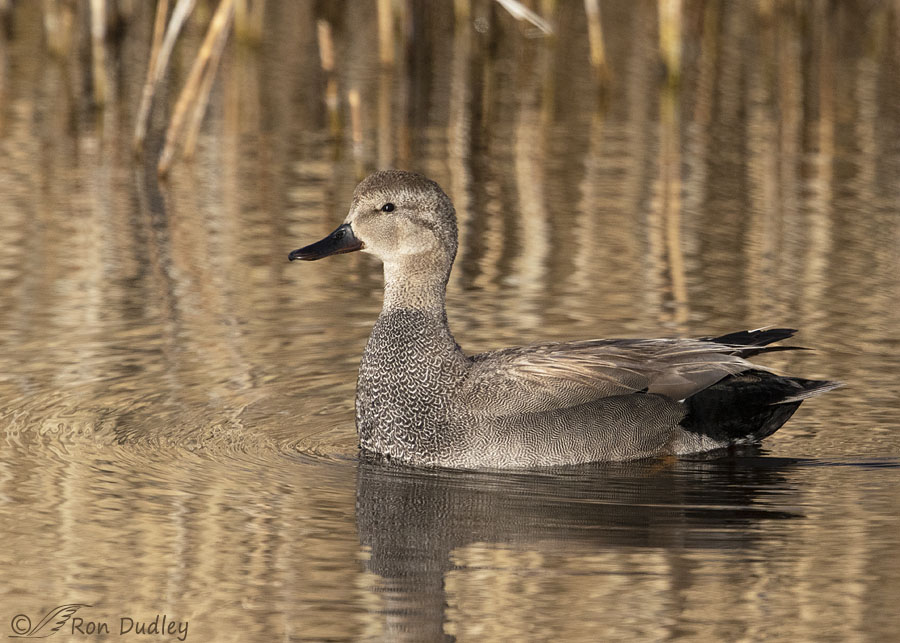
1/5000, f/6.3, ISO 800, Canon 7D Mark II, Canon EF 500mm f/4L IS II USM + EF 1.4 III Extender, not baited, set up or called in
Four days ago I took more photos than I should have of this drake Gadwall at Bear River MBR. He was acting a little weird and I wanted to see if I could figure out what was going on.
He was obviously nervous about my presence and he was in a somewhat confined area so I expected him to take off but he kept paying unusual attention to a particular spot in the phrags at the edge of the pond to our right and pumping his head in that direction.
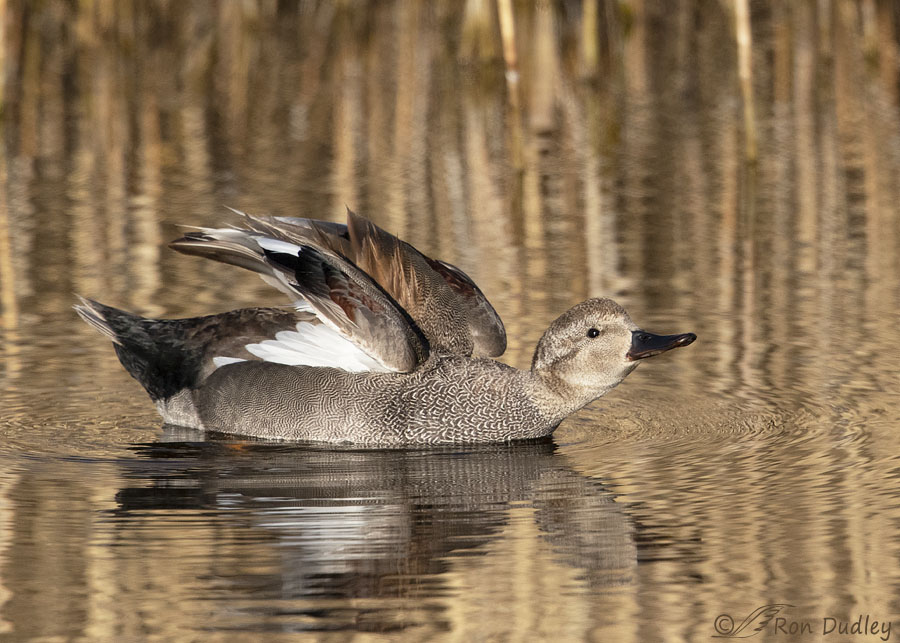
1/5000, f/6.3, ISO 800, Canon 7D Mark II, Canon EF 500mm f/4L IS II USM + EF 1.4 III Extender, not baited, set up or called in
He performed three distinct and separate wing stretches while facing that area in the phrags. In hindsight I have to wonder if those stretches had some behavioral significance other than just stretching his wing muscles. Three wing stretches in such a short time seems more than a little unusual.
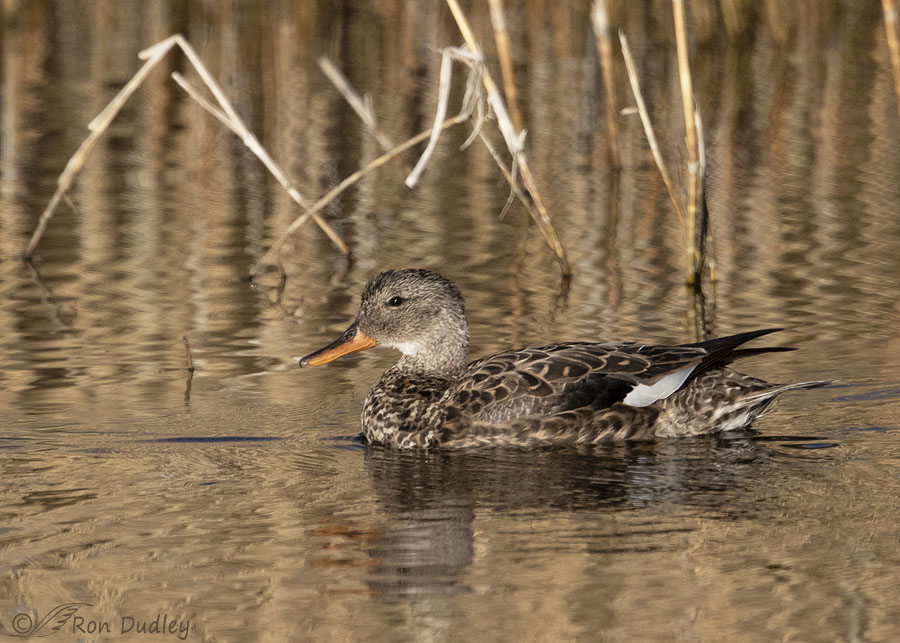
1/6400, f/6.3, ISO 800, Canon 7D Mark II, Canon EF 500mm f/4L IS II USM + EF 1.4 III Extender, not baited, set up or called in
Eventually his mate, who I didn’t know was there, swam out of that very spot in the reeds. I had the distinct impression that she was coaxed out by the male.
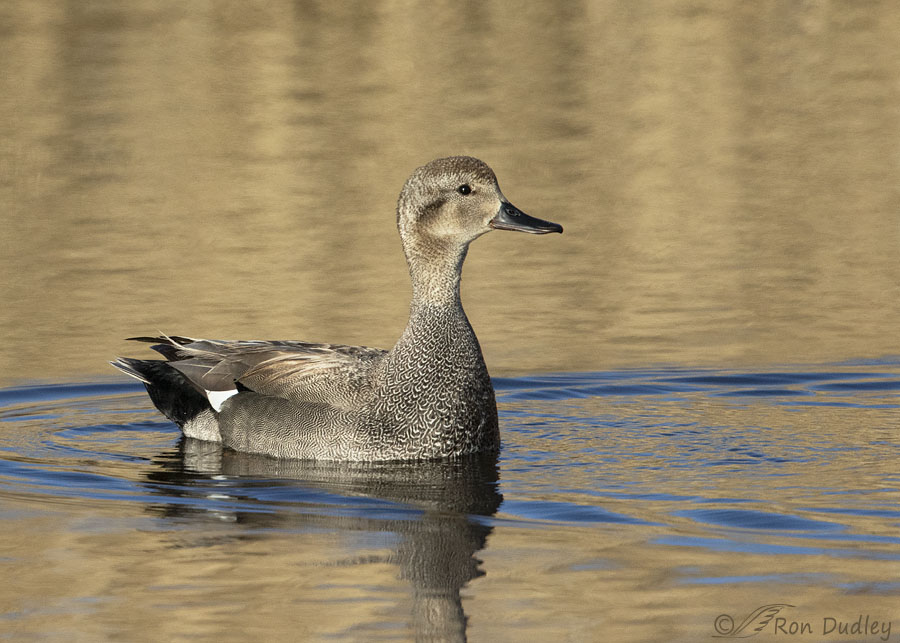
1/6400, f/6.3, ISO 800, Canon 7D Mark II, Canon EF 500mm f/4L IS II USM + EF 1.4 III Extender, not baited, set up or called in
They both swam to my left and then eventually turned around 180° to face north. Here the female is just out of frame to the right.
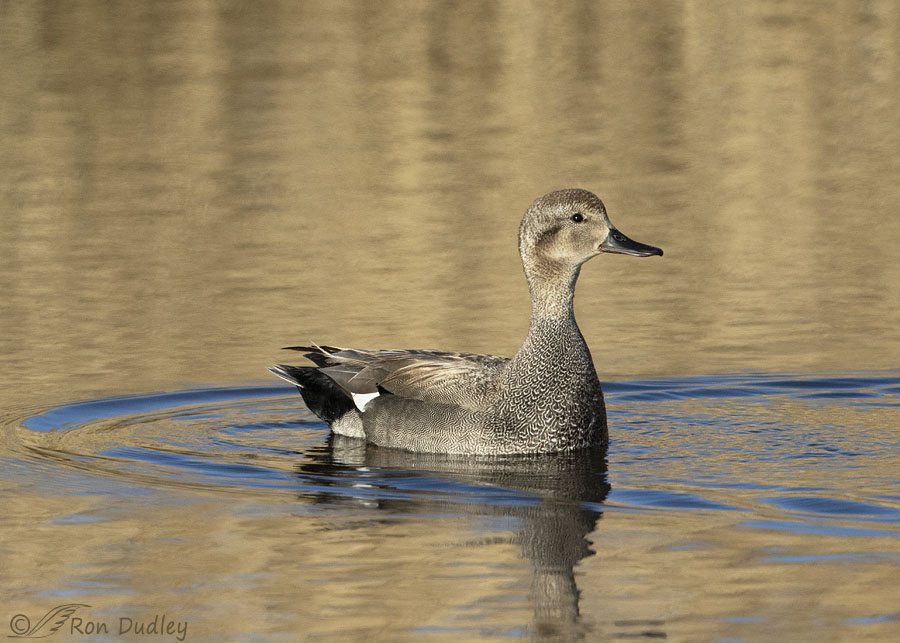
A different crop of the same photo allows us to see all of the water ripples that serve as evidence that he had been swimming to our left and then abruptly turned to face the opposite direction. For some reason I like seeing all of that ripple evidence, even though this crop places the duck in a less desirable position in the composition.
At this point I was pretty sure that both ducks were about to take off to the north so of course I wanted the takeoff shots. But when it happened I flubbed them.
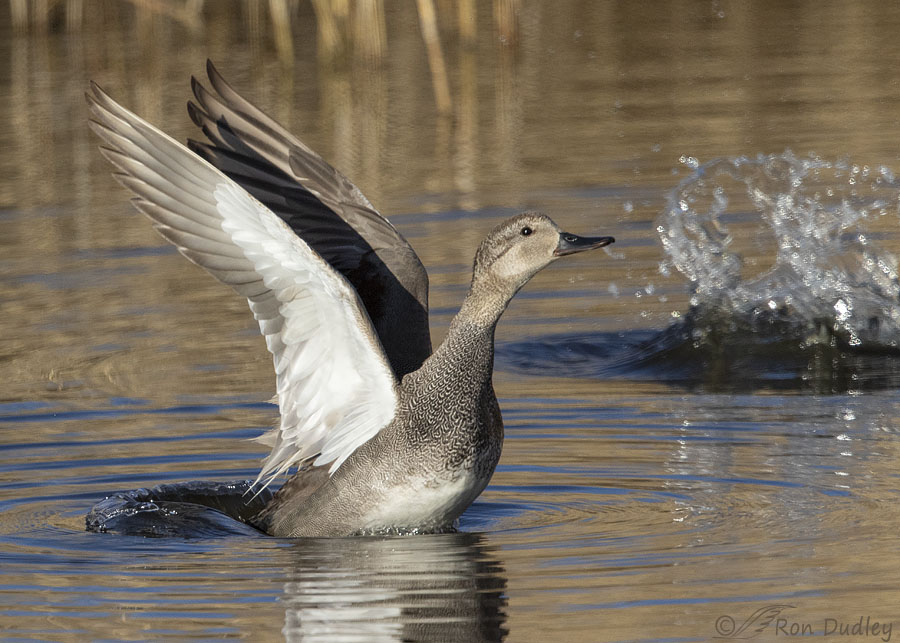
1/4000, f/6.3, ISO 800, Canon 7D Mark II, Canon EF 500mm f/4L IS II USM + EF 1.4 III Extender, not baited, set up or called in
In the first takeoff shot I must have jerked my lens (an old habit of mine) because even at a shutter speed of 1/4000 he isn’t quite as sharp as he should be. The water splash to the right was made by his mate as she took off a split second before he did.
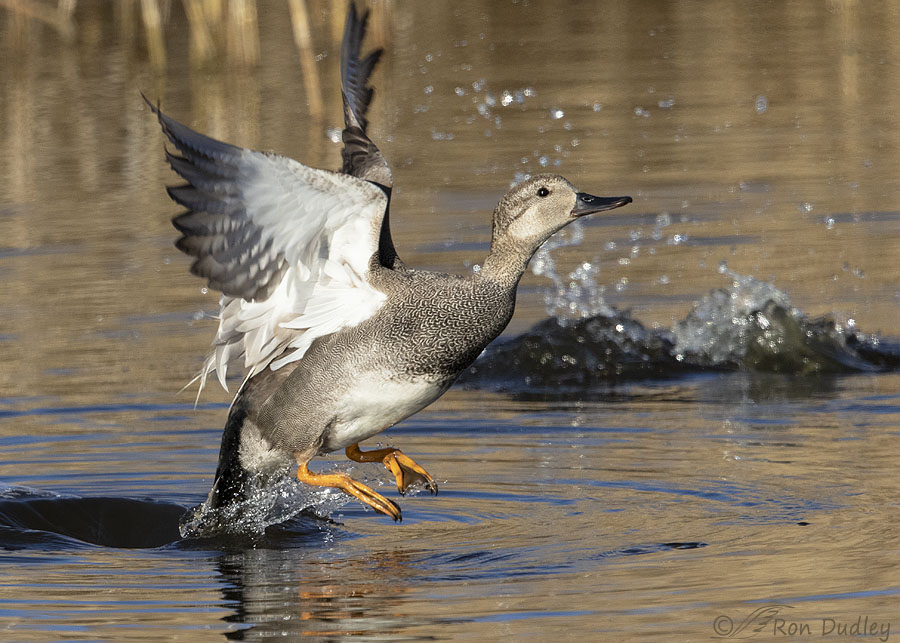
1/5000, f/6.3, ISO 800, Canon 7D Mark II, Canon EF 500mm f/4L IS II USM + EF 1.4 III Extender, not baited, set up or called in
And in the second takeoff shot I clipped his left wing.
Easy to do and it happens all the time but still disappointing.
Ron


Love ducks – more please – and the ripples are fabulous!
Kathleen, I’ll try to post a few more of them, especially this time of year.
I love your interest in behaviour and the stories it tells.
And this series.
He is a subtle charmer and could certainly coax me out from the bushes.
The blue ripples are the icing on the cake for me.
Thank you.
Thanks very much, EC.
I can appreciate your “ripple discomfort” because I have felt it too and made the same choices from time to time but sometimes the “story” just has to be told regardless of the “norms” because, . . . well, what is life but a story ? Thanks for sharing your stories with us.
Granny Pat, another way to say it is “rules are meant to be broken”.
They are still lovely. And yes I like the water ripple. When I am cropping I am torn between a tighter shot or including the water ripples and reflections. I have been seeing more Gadwalls this year. The males remind me of a man in a nice tweed jacket.
“The males remind me of a man in a nice tweed jacket.”
That’s perfect, April.
My thoughts too! the male with the “professorial” tweed-like jacket of patterned feathers, very nice. He certainly caught my attention
The scalloping of the feathers is gorgeous. It is nice to see what some would call a drab bird get this attention. There is a lot of beauty in the patterning!
Thanks, Arwen. It all boils down to this: I really should post more ducks, even though they don’t get as much reaction from viewers as most other birds.
I can’t agree that you took more photos of the Gadwalls than you should have. Lots to like and ponder in these images. What the drake Gadwall lacks in color he more than makes up for in his intricate feather patterns of fine scalloping on the neck and breast, transitioning to the squiggly tracks made by beetles under the bark of tress and then to lines reminiscent of wave marks left in the sand by a receding tide. Anyway, that’s my Rorschach interpretation.
And an interesting Rorschach interpretation it is, Lyle.
Gadwalls seem to be one of the underated ducks in the waterfowl world. Even the drake here doesn’t seem to have many mature colors I typically see in the fall. Are you seeing any ruddy ducks with their blue bills?
Shane, as I recall we’ve only seen one Ruddy with a fully blue bill so far this season, maybe about a week ago.
Subtly beautiful ducks that camouflage well! Particularly like the feather pattern on the male’s chest and body. Yeh, jerking the lens IS an issue at time……
Yeh, jerking the lens IS an issue at time…… 
Getting a little much needed rain – as usual wind took care of the last bit we got – maybe?…… HA!
Wind? You have wind in Montana??? Learn something new every day!
I thought it interesting that in shots #4 and 5 that his “wake” /ripple reflected
the blue of the sky, while all of the rest of those pictures were of warm gold
and tan hue….that single shape of blue set him off beautifully !
Kris, what you describe is part of the reason I like those blue ripples as much as I do.
Excellent series. Gadwalls are among the least colorful of our ducks, but I think still handsome and worthy of photographing. In that first photo the drake looks so serene without a care in the world.
It makes this amateur feel good to see you admit to jerking the camera on takeoffs. I do it very often even though I keep telling myself to just relax and and don’t jerk as I wait for the takeoff. Murphy’s Law most often prevails.
That is still a pretty nice takeoff photo though even with that little bit of the clipped wing.
Everett, jerking the lens is a very bad habit that I’ve never been able to completely break. It almost never accomplishes anything positive but reflexive actions are extremely difficult to avoid, especially when you’re all tensed up waiting for the action to begin.
Thanks, Julie. I’m glad you like those blue ripples – they also grab my eye in a good way. .
These are beautiful, Ron. The colors and detail of his feathers are amazing. And I love how the ripples appear blue.